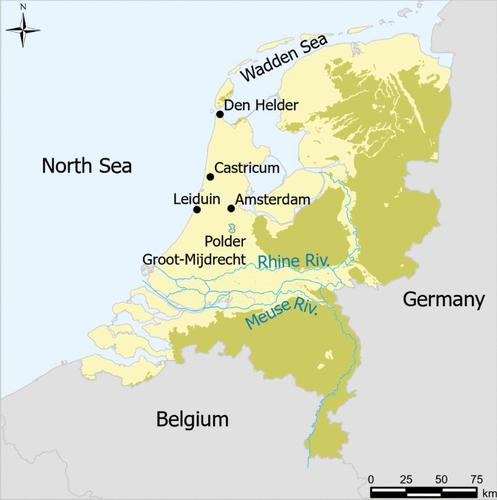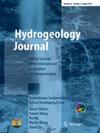荷兰地下水水文地球化学研究的历史及研究动机
IF 2.3
3区 地球科学
Q2 GEOSCIENCES, MULTIDISCIPLINARY
引用次数: 0
摘要
摘要概述了自19世纪初以来荷兰地下水资源的水文地球化学方面的研究。最早的研究是将地下水作为一种饮用水资源。第一次系统的全国性研究是在1868年,受到当时霍乱流行的推动。20世纪初,饮用水生产的研究在国家一级制度化。自20世纪60年代以来,参与水文地球化学研究的组织范围扩大了。社会动机也被确定:浅层生物甲烷作为化石燃料(自19世纪90年代以来已经进行了研究);地下水污染;含水层的新鲜/盐碱化;生态水文学与自然保育;含水层储热;用于政策评价的国家和区域地下水监测;气候变化和天气变率的影响;以及在地下较深处的微咸地下水和盐水的赋存。最后提到的是由一系列动机驱动的,从娱乐水疗和矿泉水生产的供水到地下放射性废物的处置。有两个主要的科学驱动因素:使用同位素作为示踪剂的技术的引入,以及地球化学计算机建模。最近的另一项发展是分析化学在处理地下水受到新出现的污染物污染方面的能力日益增强。许多研究动机出现在20世纪80年代。总的来说,社会和相关的技术动机比荷兰地下水水文地球化学研究的科学动机更为重要。一旦研究动机出现,它通常倾向于保持不变。本文章由计算机程序翻译,如有差异,请以英文原文为准。

History of the hydrogeochemical study of groundwater in the Netherlands and the research motives
Abstract An overview is presented of research on the hydrogeochemical aspects of groundwater resources in the Netherlands conducted since the early nineteenth century. The earliest studies investigated groundwater as a resource for drinking water. The first systematic, national study was in 1868 and was motivated by the cholera epidemics at that time. At the beginning of the twentieth century, research for drinking water production was institutionalised at national level. Since the 1960s, the range of organisations involved in hydrogeochemical research has broadened. Societal motives are also identified: shallow, biogenic methane as fossil fuel (already researched since the 1890s); groundwater contamination; freshening/salinisation of aquifers; ecohydrology and nature conservation; aquifer thermal energy storage; national and regional groundwater monitoring for policy evaluation; impact of climate change and weather variability; and occurrence of brackish groundwater and brines in the deeper subsurface. The last-mentioned has been driven by a series of motives ranging from water supply for recreational spas and mineral water production to subsurface disposal of radioactive waste. There have been two major scientific drivers: the introduction of techniques for using isotopes as tracers, and geochemical computer modelling. Another recent development has been the increasing capabilities in analytical chemistry in relation to the contamination of groundwater with emerging pollutants. Many of the motives for research emerged in the 1980s. Overall, the societal and associated technical motives turn out to be more important than the scientific motives for hydrogeochemical research on groundwater in the Netherlands. Once a research motive has emerged, it commonly tends to remain.
求助全文
通过发布文献求助,成功后即可免费获取论文全文。
去求助
来源期刊

Hydrogeology Journal
地学-地球科学综合
CiteScore
5.40
自引率
7.10%
发文量
128
审稿时长
6 months
期刊介绍:
Hydrogeology Journal was founded in 1992 to foster understanding of hydrogeology; to describe worldwide progress in hydrogeology; and to provide an accessible forum for scientists, researchers, engineers, and practitioners in developing and industrialized countries.
Since then, the journal has earned a large worldwide readership. Its peer-reviewed research articles integrate subsurface hydrology and geology with supporting disciplines: geochemistry, geophysics, geomorphology, geobiology, surface-water hydrology, tectonics, numerical modeling, economics, and sociology.
 求助内容:
求助内容: 应助结果提醒方式:
应助结果提醒方式:


